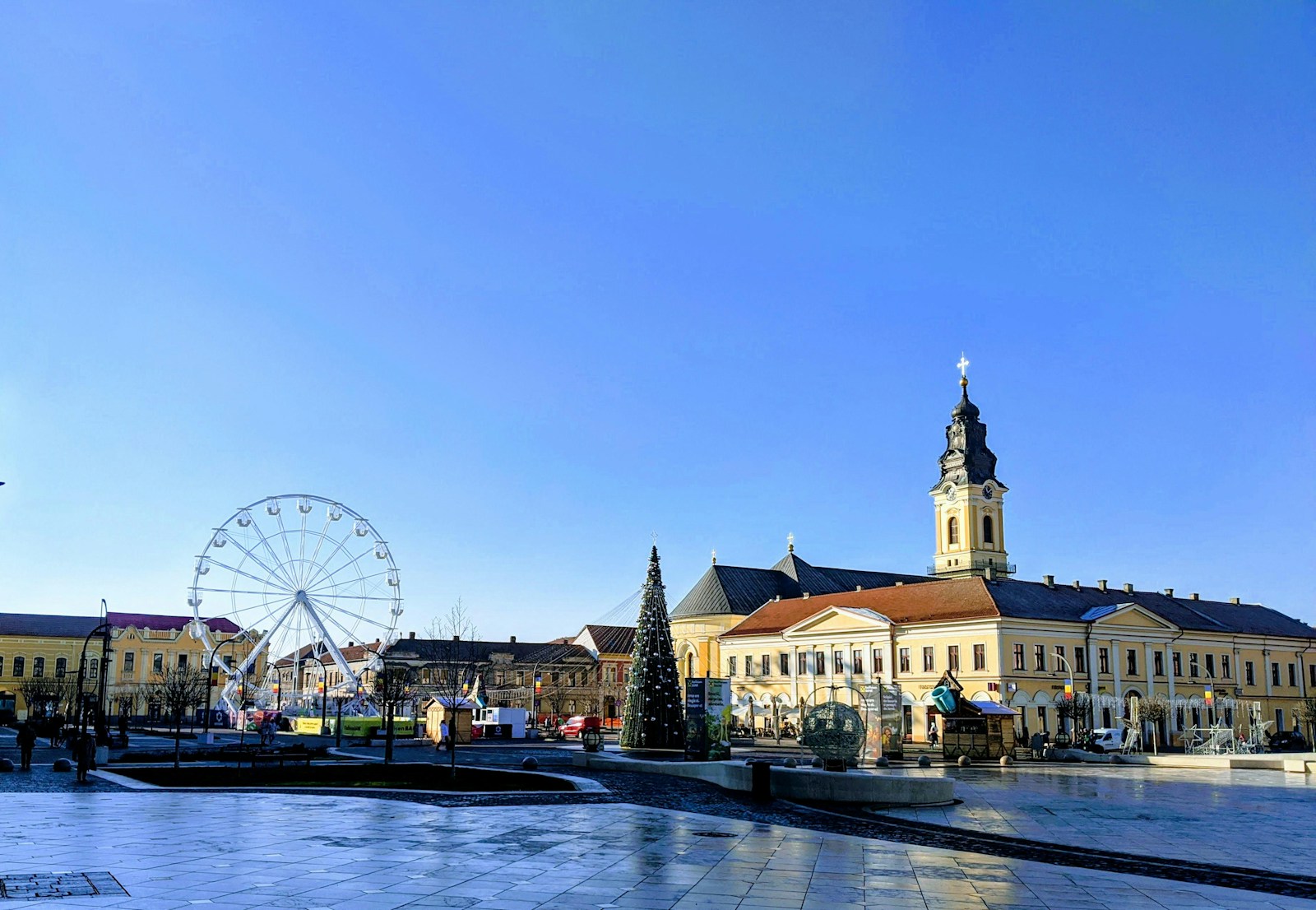In the realm of European integration, Romania has been on a remarkable journey, marked by its aspirations to join the prestigious Schengen Agreement. As a significant achievement of the European project, Schengen represents a borderless zone enabling free movement between member countries. For Romania, the prospect of Schengen membership holds immense potential, not only for seamless travel within the region but also for streamlining processes such as obtaining work permits, residence permits, and visas. This article delves into the essence of Schengen and its potential benefits for the country, particularly in facilitating smoother administrative procedures for those seeking opportunities within its borders.
What does Schengen stand for?
The Schengen Agreement, established in 1985, is a significant achievement of the European project. It was initially signed by five EU countries and has since grown to encompass a larger number of member states. The agreement allows for the free movement of people within the Schengen area, which has become the world’s largest free travel area.
The Schengen Agreement was signed in the village of Schengen, located at the borders of Luxembourg, Germany, and France. It was later followed by the signing of the Schengen Convention in the same location. Being part of the Schengen area means that member countries do not conduct checks at their internal borders, except in cases of specific threats. However, they do carry out harmonized controls at their external borders, adhering to clearly defined criteria.
The regulations governing the Schengen Agreement area are collectively known as the Schengen Borders Code. This code ensures the proper functioning and security of the Schengen area, facilitating the free movement of people while maintaining effective border controls.
Which countries are part of Schengen?
The Schengen area is composed of 27 countries, making it one of the largest free travel zones in the world. It includes 23 out of the 27 member states of the European Union. These countries are Austria, Belgium, Czech Republic, Denmark, Estonia, Finland, France, Germany, Greece, Hungary, Italy, Latvia, Lithuania, Luxembourg, Malta, Netherlands, Poland, Portugal, Slovakia, Slovenia, Spain, Sweden, and the non-EU members Norway, Iceland, Liechtenstein, and Switzerland.
Croatia became the 27th member of the Schengen Agreement area on January 1, 2023. However, Bulgaria, Cyprus, and Romania are still in the process of meeting the necessary requirements to join fully, and their internal border controls have not yet been lifted. Furthermore, Ireland, as an EU member, has chosen not to be part of the Schengen area, maintaining its own separate border controls. Overall, the Schengen area encompasses a significant portion of Europe and facilitates free movement for its citizens.
What are the criteria for becoming a member?
To become a member of the Schengen area, each country must evaluate its preparedness across four key areas:
- Implementation of the “Schengen acquis”: This entails adopting and adhering to the common set of Schengen Agreement rules in crucial domains, such as border control for land, sea, and air, visa issuance, police cooperation, and protection of personal data.
- Responsibility for external border control: Prospective members must assume the responsibility of effectively managing the external borders on behalf of other member countries. They must also issue uniform Schengen visas to maintain consistency within the zone.
- Efficient law enforcement cooperation: A high level of security is paramount within the Schengen area. Aspiring members must demonstrate efficient collaboration with law enforcement agencies from existing Schengen countries to ensure seamless cooperation once border controls between member nations are eliminated.
- Utilization of the Schengen Information System: Connectivity to and proficient utilization of the Schengen Information System is a crucial requirement. This system facilitates the exchange of vital information on security and border management, promoting enhanced safety and coordination within Europe.
What are the advantages of Romania becoming part of the Schengen Agreement?
1. Strengthening Economic Ties
Joining the Schengen area would have a positive impact on Romania’s economy by strengthening its economic ties with European countries. The removal of internal border controls would enable the smooth flow of goods and services, resulting in increased trade and economic activity. This enhanced exchange of goods and investments has the potential to accelerate Romania’s economic growth. Furthermore, being part of the Schengen area would provide access to new opportunities within the European single market, further benefiting its economy.
2. Fostering Tourism and Cultural Exchange
Romania’s cultural heritage, natural beauty, and historical attractions attract countless tourists each year. By becoming part of the Schengen area, Romania would benefit from a simplified travel experience for visitors, eliminating the need for multiple border checks. This ease of travel would likely result in an increase in tourist arrivals, thereby boosting the country’s tourism sector. The economic benefits of this growth in tourism cannot be understated, as it can significantly contribute to Romania’s overall prosperity. Additionally, the increased interaction between tourists and locals fosters cross-cultural understanding, facilitating cultural exchange and mutual appreciation.
3. Strengthening Security and Cooperation
Schengen membership provides Romania with more than just economic advantages. It also facilitates improved security measures and cooperation with other member countries. Through the harmonized system of external border controls, Romania can collaboratively combat transnational crime and effectively address security challenges. By sharing intelligence and resources, a strong security network can be created, enhancing the safety and stability of both citizens and visitors. This cooperative approach to security fosters a safer and more secure environment for all involved.
4. Facilitating People-to-People Connections
Romania’s inclusion in the Schengen area would facilitate people-to-people connections and promote the vision of a united Europe. With unrestricted movement, individuals would have the opportunity to freely interact, exchange knowledge, and experience different cultures. This would enhance education opportunities by encouraging the mobility of students, researchers, and professionals. The resulting knowledge-sharing environment would foster innovation and progress, benefiting not only Romania but also the wider European community. Overall, Romania’s inclusion in the Schengen area could contribute to the promotion of international understanding and cooperation.
5. Boosting Confidence and Investment
Schengen membership is of great significance for Romania in terms of boosting confidence and attracting investment. Being part of the Schengen zone carries substantial weight, signaling to the global community that Romania is a stable and reliable partner for investment and trade. This enhanced credibility and trust can lead to increased foreign direct investment, stimulating robust economic development. The membership would contribute to creating a favorable environment for investment and pave the way for further economic growth in the country.
History of Romania’s Attempts to Enter Schengen
2007 – Accession to the European Union
On January 1, 2007, Romania and Bulgaria officially became members of the European Union, a momentous event in their journey toward integration into the EU’s community of nations. This marked a significant leap forward in both countries’ commitment to European ideals and opened doors to new opportunities for growth and development. The accession paved the way for increased cooperation, collaboration, and shared values within the EU framework. This milestone emphasized their dedication to the principles of European unity and created a platform for enhanced cooperation on various fronts.
2011 – First Application
In July 2011, Romania officially submitted its application for membership in the Schengen area. This move showcased the strong commitment to further European integration and its desire to become part of the borderless zone. By joining the Schengen area, the country aimed to eliminate internal border controls, allowing for easier travel and enhanced cooperation with other member states. This application served as a significant milestone in Romania’s efforts to embrace the principles of unity and openness and to strengthen its ties and opportunities within the Schengen community.
2012 – Positive Evaluation
The European Commission’s evaluation of Romania’s preparedness for Schengen membership took place in 2012. This thorough assessment reviewed various aspects of Romania’s border management, security measures, and administrative capabilities. After careful examination, the European Commission concluded that Romania had met all the necessary requirements for Schengen membership. This positive evaluation highlighted Romania’s dedication to upholding the high standards of the Schengen Zone and brought the country closer to achieving its goal of unrestricted travel within the European community.
2013 – Delayed Acceptance
In 2013, Romania faced unexpected obstacles in its efforts to join the Schengen area. Despite being evaluated positively by the European Commission, certain member states had reservations, leading to delays in Romania’s acceptance. The concerns primarily focused on issues such as corruption and the rule of law, which some countries believed needed further improvement before granting full Schengen membership. This delay highlighted the complexities of the Schengen accession process and emphasized the need to address underlying issues in order to achieve smooth integration within the European community.
2014 – Dispute Over Corruption and Rule of Law
In 2014, Romania faced challenges in its bid to join the Schengen area due to concerns over corruption and the rule of law. These concerns became a major point of contention among member states, hindering Romania’s entry into the borderless zone. This dispute highlighted the importance of meeting stringent criteria set by the Schengen community, emphasizing the need for strong governance and adherence to European values. Romania’s ongoing efforts to address these concerns underscored the complexities of Schengen accession and the need to demonstrate an unwavering commitment to transparency and accountability within the European framework.
2018 – European Commission Reaffirms Support
In 2018, the European Commission reaffirmed its support for Romania’s accession to the Schengen area. The Commission conducted a thorough assessment and confirmed that Romania had met all the technical requirements for Schengen membership. This reassurance from the Commission showed confidence in Romania’s progress and efforts to align with the Schengen criteria. It acknowledged the commitment to fulfilling obligations and emphasized the country’s path toward becoming a part of the borderless Schengen community. This development marked a significant step forward in Romania’s journey towards seamless travel and cooperation within the European framework.
2019 – Continued Opposition
In 2019, Romania faced opposition from certain member states despite receiving positive assessments from the European Commission for Schengen membership readiness. Concerns over corruption and the rule of law were reasons for the reluctance to grant full membership. These concerns were prominent in discussions among member states, causing delays in Romania’s integration into the Schengen area. This opposition underscored the need to address these underlying issues and emphasized the importance of meeting technical requirements and upholding European values. Romania’s path to Schengen membership continued to be subject to further deliberation and scrutiny within the context of European cooperation and integration.
2022 – Romania’s Accession is Denied
During the Justice and Home Affairs Council meeting on December 8, 2022, Austria surprised many by voting against Romania’s accession to the Schengen area. This was unexpected, as Austria had previously expressed support for the country’s bid for membership. The Netherlands also voted against the entry, primarily due to their concerns regarding Bulgaria’s accession to the Schengen area. The intertwined nature of Romania’s and Bulgaria’s votes further complicated the situation, creating uncertainties for both countries’ integration into the borderless zone. This setback represents a challenge to Romania’s aspirations of seamless travel and cooperation within the Schengen community, requiring the country to address concerns and gain support for future membership.
2023 – Ongoing Efforts
Exciting developments are underway for Bulgaria and Romania’s integration into the Schengen area. European institutions are preparing to admit both countries this year, with visa-free travel by air expected to commence in October. Furthermore, the abolition of land border controls is projected to take effect by January 1.
Reliable sources in Brussels, along with officials from the Bulgarian parliament and government, have provided information about these positive advancements. To aid in this process, the EU has granted financial assistance of €45 million to Bulgaria and €10.8 million to Romania for the implementation of pilot projects for border management. While the final confirmation is pending, these steps signify a significant leap forward, bringing both nations closer to seamless travel and strengthened cooperation within the European community.
In conclusion, Romania’s pursuit of Schengen membership represents a transformative opportunity for the nation, promising significant benefits in various aspects of travel and administrative procedures. As Romania stands on the cusp of joining the borderless zone, the prospect of visa-free travel, simplified work permits, and streamlined residence permits could revolutionize mobility and open doors for international cooperation. Embracing Schengen not only fosters closer ties with other member countries but also strengthens the country’s position within the European community. By realizing its aspirations for Schengen membership, Romania can confidently stride towards a future of seamless travel, enhanced opportunities, and greater integration, propelling the nation further on its path of progress and prosperity within the broader European framework.
Connect with Nestlers consultants
Do you need immigration and relocation services or consultancy?
It’s easy! Use the below contact form and one of our experts will provide you an answer as soon as possible.
Our consultants can help you in obtaining legal documents and can provide you with assistance regarding the immigration processes, relocation, taxes and payroll, Social Security (European forms A1, S1, U1, etc.) for your employees.





